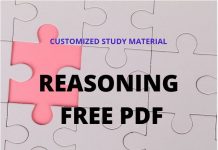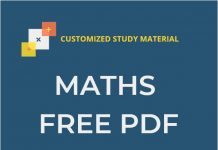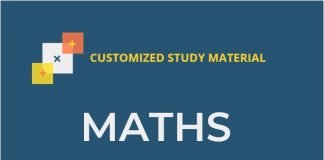Directions (Q. 1-5): In each question below is given a statement followed by two assumptions numbered I and II. An assumption is something supposed or taken for granted. You have to consider the statement and the following assumptions and decide which of the assumptions is implicit in the statement. Give answer
a)If only assumption I is implicit.
b)If only assumption II is implicit.
c)If either I or II is implicit.
d)If neither I nor II is implicit.
e)If both I and II are implicit.
Q1.Statement:
Even with the increase in the production of sugar in India, we continue to import sugar.
Assumptions:
I.The consumption of sugar per capita has increased in India.
II.Many production units are not in a position to produce sugar to their apex capacity.
Q2. Statement:
Govt. schools should have uniformity in charging various fees.
Assumptions:
I.The govt. subsidy comes from the money collected by way of taxes from people.
II.The govt. while giving subsidy, may have stipulated certain uniform conditions regarding fees.
Q3. Statement:
If degrees are delinted from jobs, students will think twice before joining college.
Assumptions:
I.Students join college for getting a job. II.A degree is of no used for getting a job.
Q4. Statement:
The impact of sanctions on the economy, which is already so weak, could be devastating.
Assumptions:
I.Sanctions impact only a weak economy. II.The impact of sanctions varies from economy to economy.
Q5. Statement:
Let us announce attractive incentives for better performance.
Assumptions:
I.Incentive schemes do not work in the long run. II.The performance can be improved.
Q6. A number of CEOs are preparing to make fresh investments and are also stepping up hiring.
Which of the following inferences can best be drawn from the above statements?
a) 6–8% GDP growth is likely over the next three years.
b) A higher GDP growth is likely over the next few years.
c) The new regime has failed to meet expectations.
d) The companies will soon be burdened with loans.
e) None of these
Q7. Global Financial Integrity has highlighted that India was among the top 10 nations in terms of illicit outflows, with an outgo of $123 billion in the decade to 2010.
Which of the following courses of action should best be taken?
a) There should be a single global standard for automatic exchange of financial account information by various countries.
b) A Special Investigation Team should be made to probe black money.
c) The currency of the country should be changed.
d) The governments should join hands to tackle terrorism.
e) None of these
Q8. The government is considering a ban on the sale of electronic cigarettes, a vapour device that delivers a nicotine hit minus the smoke.
Which of the following statements substantiates the fact expressed in the above statement?
a) India does not have laws that deal directly with the sale of e-cigarettes.
b) Unlike conventional cigarettes, e-cigarettes release vapor — and not smoke — when a nicotine-laced liquid is heated.
c) An expert panel has found it could lead to addiction, particularly among the youth.
d) Punjab banned e-cigarettes last year and Maharashtra is considering a similar move.
e) None of these
Q9. There are at least 15 e-commerce sites that have ‘kart’ appended to their name.
Which of the following is the most possible reason for this phenomenon?
a) Jabong, as everyone knows, has done pretty well for itself, despite having no ‘kart’ in its name.
b) What matters over time is service quality and not the name.
c) Along with the name, it is the business model, execution and offering which make the brand difficult to be cloned or impacted.
d) These are not cases of blatant copyright infringement.
e) None of these
Q10. The India-Japan civilian nuclear deal may not be sealed during Prime Minister Narendra Modi’s trip to Japan.
Which of the following assumption is implicit in the above statement? (An assumption is something supposed or taken for granted.)
a) Discussions are on to bridge the core differences between the two sides over the proposed treaty.
b) Japan is insisting on tougher safeguards and “no nuclear test” clause.
c) There are some concerns about the deal from either side.
d) Discussions were stalled following Fukushima nuclear accident in 2011.
e) None of these
Solution













